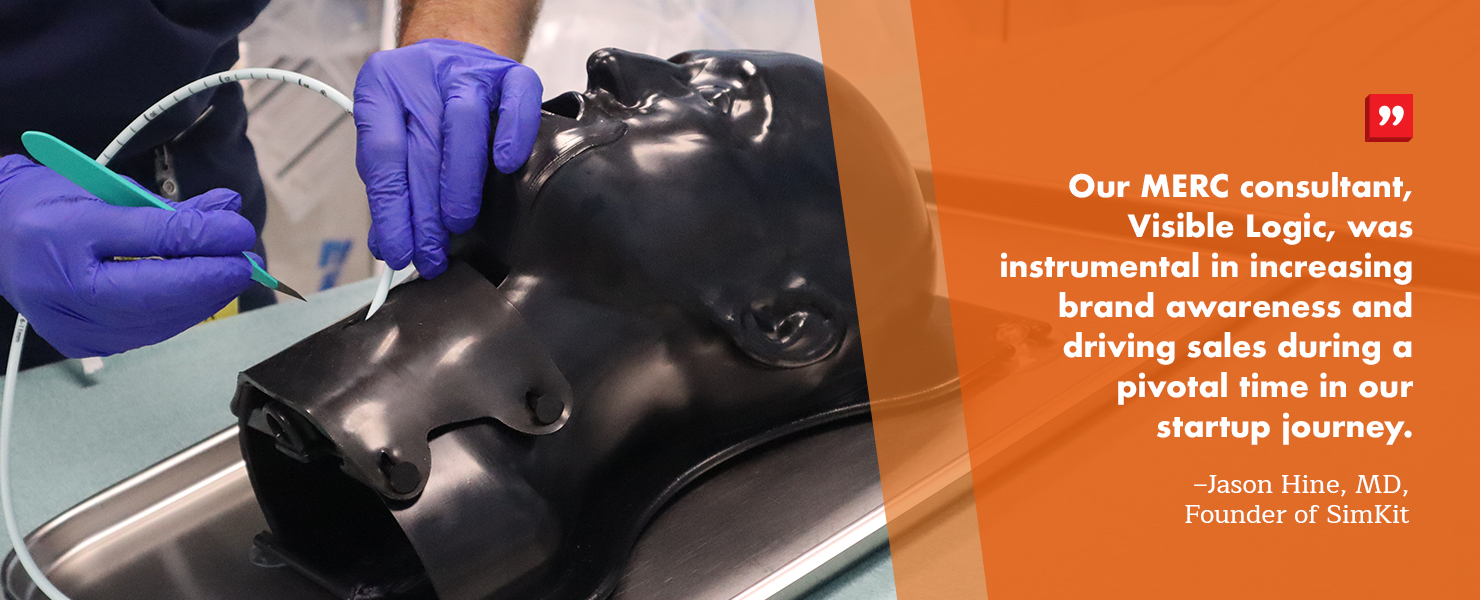Revolutionizing Emergency Medicine Training with MERC Support
Multiple Awards | $119,687

3
procedures covered
12
subscription boxes
63,000
practicing EM physicians in the US
In the fast-paced world of emergency medicine, maintaining procedural skills for rare, life-saving interventions is crucial. SimKit, founded by Dr. Jason Hine, is addressing this challenge head-on with an innovative approach to medical education.
Launched in July 2023, SimKit delivers monthly simulation boxes to emergency physicians, allowing them to practice vital procedures at their convenience. However, like many startups, SimKit faced initial hurdles in sales growth and market traction.
Enter the Maine Entrepreneurial Resource Corps (MERC) program, a lifeline for Maine-based entrepreneurs. Dr. Hine learned about MERC through his Small Business Development Center (SBDC) mentor, Tina Oddleifson. Recognizing the need to reach their specific target audience of emergency medicine physicians, SimKit turned to MERC for support.
MERC funding enabled SimKit to collaborate with Visible Logic, a Portland-based branding and marketing agency, to plan and launch a targeted social media ad campaign. The three-month campaign, focused on Meta platforms, proved to be a game-changer for the young company.
The results were striking. Prior to the campaign, SimKit’s website traffic averaged 425 visitors in August and 514 in September. During the campaign, these numbers skyrocketed to 3,900 in November and 5,500 in December — a staggering 1,000% increase. More importantly, this boost in visibility translated into tangible sales, helping SimKit cover the overhead costs associated with producing their complex, multifaceted product.
Dr. Hine emphasizes the impact of this partnership, noting, “Our MERC consultant, Visible Logic, was instrumental in increasing brand awareness and driving sales during a pivotal time in our startup journey.”
Beyond financial support, SimKit has benefited from Maine’s robust entrepreneurial ecosystem. Dr. Hine praises the state’s infrastructure for supporting new businesses, citing organizations like the Maine Center for Entrepreneurs, SBDC, and the Maine Technology Institute (MTI) as invaluable resources for aspiring entrepreneurs.
Looking ahead, SimKit aims to empower healthcare providers globally, improving patient care by offering accessible, affordable simulation education. The company’s journey from a local startup to a potentially international player in medical education underscores the power of targeted support programs like MERC in fostering innovation and growth in Maine’s business landscape.
As SimKit continues to evolve, its success story serves as a testament to the effectiveness of Maine’s collaborative approach to nurturing startups, showcasing how local support can lead to far-reaching impacts in critical fields like emergency medicine.
